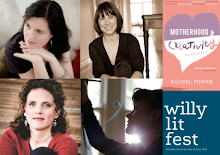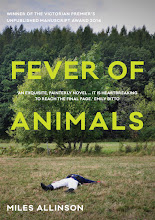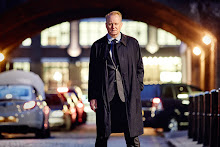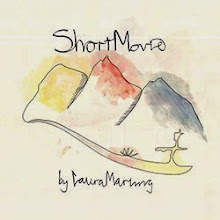 |
| Karen (left) and me (seated) |
We're here to launch Karen’s book, Crying in the Car: Reflections on Life and Motherhood – which may look slight but packs a way bigger punch than its size suggests (a bit like Karen).
When Karen’s book arrived in the mail, I tore open the package, opened to the first page, read a few lines and then did that thing you do when you know a book’s going to hit a nerve. I immediately closed it and put it down. (I also knew it was going to make me a bit jealous.)
Then I took a deep breath, made myself a cup of tea and opened it up again.
If you haven’t read Karen’s book yet, she opens by talking about running into a friend at a bookstore, who asks her if she was working on any significant projects. To which she responds with those familiar lines that "she’s got a lot going on, blogging takes up most of her creative space"... blah blah blah. That’s when I closed the book. See? Didn’t take long!
I too get that confronting question all the time: “So, what are you working on? Are you writing a new book?” I expect most of the people in this room know how loaded that question is — dare I say it: especially for women; and even more so for mothers, whose domestic workload is so huge and so invisible.
And I suppose that brings me to how I know Karen and why she might have asked me to launch this book.
I first met Karen at the launch of her children’s book, Surprise, which happened to be illustrated by my wonderful friend and workmate Kim Fleming. There, Karen mentioned that she had read my book, The Divided Heart: Art and Motherhood, which initially came out my sense of creative frustration and ambivalence about writing and mothering — the fear that to succeed at one would mean failing at the other.
I wrote that book when my children were babies and then toddlers. Now they are 7 and 10 (scarily enough) and I’ve had a lot of time to reflect on what it means to be a mother and a writer (or any type of creative person), with all the struggles that entails. And there are a couple of things that I always say to mothers who talk to me about how hard they’re finding it to make space for creativity in their lives:
1. You have to give yourself the permission to create. Don’t wait for your partner to give you it (no matter how supportive he or she might be); don’t wait for the world to give it to you (it won't -- the world is full of competing distractions and demands); and for heaven’s sake don’t wait for the kids to give you permission. Because they won’t either. You need no other reason than that you need to do it, because it makes you more alive.
2. As a parent you have a lot less time, it’s true — but what you lose in time you make up for in access to the some of the most universal and fundamental aspects of life. In many ways, if you are a creative person, you are in a uniquely privileged position as a mother.
This is where Karen is coming from on in her very impressive book. She has drawn on all those strange and unexpected situations that parenthood throws us into — playground politics, long-term relationships, the intense confrontation with our self that comes with being more vulnerable than you've ever been. All that is here inside these covers. Along with a great deal of humour.
So while we all have had those moments where we feel like we’re making defensive excuses to friends in bookshops, Karen has found a way to move beyond the barriers life throws up and the fears that get in our way to make stuff happen anyway.
Before I wrote The Divided Heart, I have to admit that I was completely ignorant about the world of blogging. I was asked to start a blog by my publisher and suddenly I was plugged in to this incredible online community of mother bloggers, and Karen was there, right smack at the centre of it with her award-winning blog, Miscellaneous Mum.
This wasn’t the world that I had heard rumours about: full of narcissistic ego-maniacs telling us what they ate for breakfast, lunch and dinner. Here was a bunch of women really sharing the truth of what it’s like to be in that crazy and chaotic and occasionally creative world of new motherhood.
Readers of Karen’s blog know how deeply reassuring people find her honesty about the ups and downs of family life, as well as her insights on reading and writing. But I can also say, as someone who tends to read a whole backlog of posts in one sitting, there is also something extremely calming about the lovely reflective mood of Karen's posts, which somehow manage to gather a whole lot of random thoughts into some cohesive, soothing whole.
That same capacity for revelation and for deep empathy is here, in Crying in the Car. And if blogging is the thing that got her “back into writing”, as Karen has said — a way of flexing that muscle in short bursts and finding a voice — well, it has worked. There is one very confident voice on display in the material contained here.
Those who are regular readers of her blog know that Karen’s had a really full-on year this year, health-wise, and yet she’s still managed to write, publish and distribute this book, all under her own steam. It’s an impressive feat. So perhaps now she can tick off that item on her "Living List" that says "Write a book (or twenty)".
Or maybe she’s not going to scratch that one till she has indeed published twenty.































